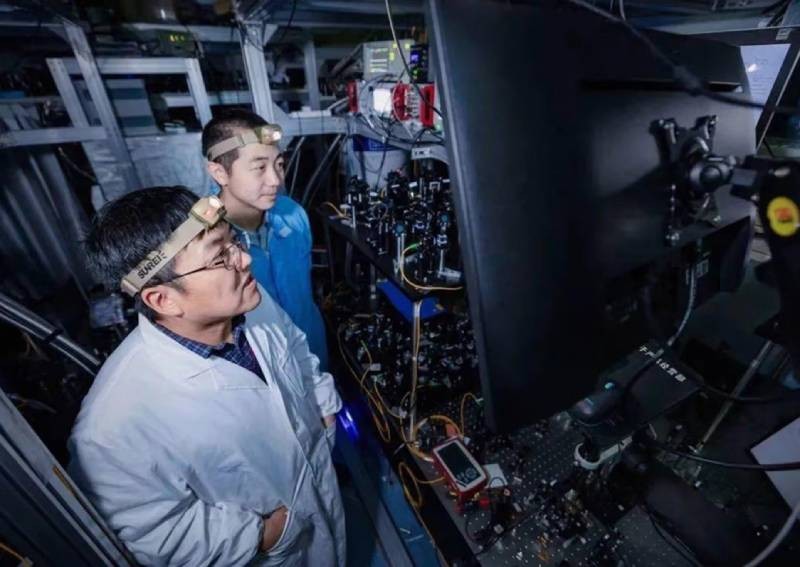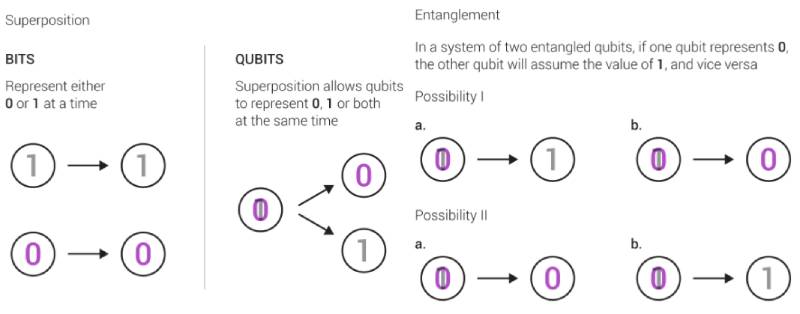Chinese scientists say they may be a step closer to a quantum code-breaking machine

University of Science and Technology of China
Chinese scientists say they could be a step closer to developing a code-breaking machine, thanks to a recent breakthrough in quantum memory technology.
A quantum computer can crack an encrypted message in hours, but it needs tens of millions of qubits — the quantum information carried by subatomic particles — to make the calculation.
At present, the most powerful quantum computers run with less than 100 qubits, meaning they are limited to simple tasks with little practical value.
However, a team from the University of Science and Technology of China has unveiled a design for a new quantum computer that could break a code using considerably less qubits than it was previously thought were needed.
The team in Anhui province, led by associate professor Zhou Zongquan, published their research on Friday in Acta Physica Sinica, a peer-reviewed journal run by the Chinese Physical Society.

Zhou said in a phone interview on Monday that the team anticipated the computer would still need about 10,000 qubits for the task, but “from an engineering perspective this is much easier to achieve”.
“Our experimental results suggest the idea works,” he said.
Unlike existing quantum computers, which forget a calculation as soon as it is done, this one has a memory.
The memory device is made from a crystal that can store qubits for an hour or so and the idea is that it updates the quantum information as the calculation proceeds.
A quantum computer with memory would be able to handle a complex calculation — such as the factoring of large prime numbers for data decryption — using significantly fewer qubits than a computer without memory, according to the paper.
But quantum memory technology is challenging: When the computer tries to read or write information, it triggers atoms in the memory crystal and generates a storm of background noise.
To get around this, Zhou and his team say they have developed a groundbreaking memory control technology that allows them to efficiently separate the fragile qubits from the atomic chaos.
Zhou noted that quantum memory technology was initially developed for quantum communication rather than quantum computers. For example, Chinese scientists recently sent qubits a record distance of 800km via an optic fibre — but to go further they would need quantum memory to relay the signal between locations.
China has made quantum technology a top priority and in recent years it has caught up and even surpassed the United States in some key areas, according to a Harvard University report in December.
Scientists elsewhere are also working on quantum memory technology. Soon after Zhou’s team published findings of their experimental new technology in July, researchers at the Institut de Physique Theorique in Paris proposed a quantum computer with similar architecture.
The French team estimated that with the help of memory, a quantum computer could break a mainstream encryption code in about six months using some 13,000 qubits.
Physicist John von Neumann, a pioneer of computing technology, proposed the use of a memory device to store computer programs back in 1945. But when quantum physicists started building quantum computers, they opted for simpler machines without memory.
“It looks like we’re going back to the starting point after coming full circle,” Zhou said.
But he said there was still a long way to go to develop a machine that can crack encrypted messages.
The Chinese team has developed an experimental device that uses a laser, but a practical code-breaking machine would have to run on microwaves. Zhou said it would need a whole new set of control techniques and a crystal with different rare earth elements, among other things.
“I believe a code-breaking quantum computer will be developed gradually, step by step,” Zhou said. “It’s unlikely to jump out of nowhere and change the world overnight. But maybe I’ll be proven wrong.”












Leave a Reply